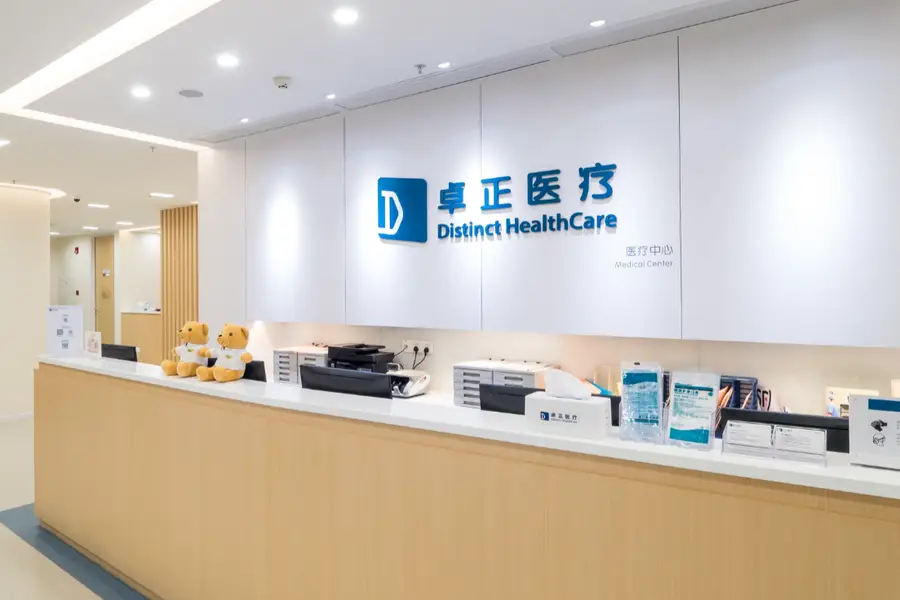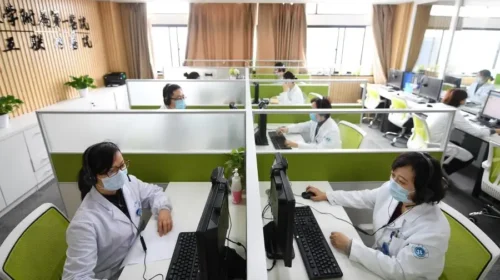IPO hopeful Distinct Healthcare targets the well-to-do market

The private healthcare provider is hoping to attract investors with a business model focusing on the medical needs of affluent families in leading Chinese cities
Key Takeaways:
- The company has built a network of 19 clinics and hospitals to serve a growing demographic of financially comfortable households
- Its revenues have been growing but the path to profitability has been challenging, with the bottom line only turning positive this year
By Molly Wen
Many of China’s private hospitals are struggling to make ends meet, squeezed by medical insurance reforms and tighter regulatory oversight. But healthcare providers serving an affluent customer base have shown greater financial resilience.
One of those premium private healthcare companies is now looking to tap stock market investors for a capital boost, with an application to list on the main board of the Hong Kong Stock Exchange.
The Nov. 5 filing by Distinct Healthcare Holdings Ltd. is the company’s third attempt at an IPO since May 2024. The firm wants to spend the proceeds from the listing, which is jointly sponsored by Haitong International and SPDB International, on upgrading its AI capability and strengthening its specialist talent pool.
Founded in 2012, the company targets the medical needs of customers with substantial purchasing power and a preference for personalized healthcare. Its services cover pediatrics, dentistry, ophthalmology, dermatology and conditions of the ear, nose and throat, as well as general surgery, obstetrics and internal medicine.
By revenue, Distinct Healthcare ranks as China’s third-largest private provider of mid- to high-end comprehensive healthcare services, with a market share of 2%, according to a Frost & Sullivan study cited in the filing.
China’s well-off middle classes continue to expand, going from 104 million people in 2020 to 123 million in 2024 and fueling demand for premium medical care, according to the study. The market has grown from 322.3 billion yuan in 2020 to 641.1 billion yuan in 2024 and is projected to approach 1.17 trillion yuan by 2029.
Over more than a decade, Distinct Healthcare has established a service network covering China’s economically developed regions. It owns and operates 19 healthcare institutions across Shenzhen, Guangzhou, Beijing, Chengdu, Suzhou, Changsha, Shanghai, Chongqing, Hangzhou and Wuhan, including 17 clinics and two hospitals. It is also one of the few Chinese private healthcare brands to venture abroad, operating four general practice clinics in Singapore and one in Malaysia.
Distinct Healthcare is also unusual in that it focuses on whole families rather than adopting a conventional model based on individual care. Medical care for children serves as the primary gateway for attracting patients, driving medical consumption for the entire family. In the first eight months of 2025, pediatric visits reached 158,900, accounting for 30% of the company’s total 541,000 paid patient visits.
An annual membership program was launched in 2020 to encourage family use of its services and promote patient retention. Each account can include up to six members who enjoy benefits such as priority appointments and discounted prices for selected services and products. By the end of August 2025, the company had approximately 116,500 active membership accounts. Paid consultations across its sites and online telehealth platform numbered 733,400 in 2023, 905,800 in 2024 and 642,100 in the first eight months of 2025.
Profitability challenge
The rapid business expansion has generated rising turnover, but profits have been elusive.
Annual revenues came in at 690 million yuan ($96.9 million) in 2023 and 958 million yuan last year, followed by 696 million yuan in the first eight months of 2025. But the bottom line registered net losses of 222 million yuan in 2022 and 353 million yuan a year later. In 2024, Distinct Healthcare achieved a net profit of 80.23 million yuan, supported by a fair-value gain on convertible preference shares. But at the operating level it made a loss that yer of 46.88 million yuan. It was not until the first eight months of 2025 that the company’s operating profit turned positive for the first time, with a net profit of 83.21 million yuan for the period.
High salaries and a big bill for staff benefits are constraining factors. In 2023, 2024, and the first eight months of 2025, Distinct Healthcare’s employee compensation and benefits came to 436 million yuan, 565 million yuan, and 377 million yuan, accounting for 63.2%, 58.9%, and 54.2% of total revenue during those periods.
The company has limited room to cut spending, as quality medical personnel represent its core competitive advantage. At the end of August, Distinct Healthcare employed 387 full-time doctors with an average of about 15 years of clinical experience, approximately 79% of whom previously worked at top-tier hospitals. However, as growing patient volumes allow for greater efficiency and economies of scale, the company’s gross margin has been improving, rising from 9.3% in 2022 to 24% in the first eight months of 2025.
Distinct Healthcare has consistently attracted strong investor interest, completing five rounds of financing since 2014. Its backers include prominent institutional investors such as Tencent, H Capital, Tiantu Capital and Matrix Partners China. Among them, Tencent is the largest institutional shareholder with a 19.39% stake.
In its Series E financing in 2021, Distinct Healthcare reached a valuation of approximately $510 million. For comparison, ophthalmology specialist C-MER Medical Holdings (3309.HK), which is already listed in Hong Kong and generates more than 1 billion yuan in annual revenue, has a market capitalization of around HK$2.25 billion, equivalent to around $290 million and worth much less than Distinct Healthcare.
This contrast highlights the mindset of the Hong Kong investment community towards healthcare providers. The market tends to place greater emphasis on sustainable profits rather than business scale or pre-IPO valuations. Therefore, the market reception for Distinct Healthcare may hinge on whether it can convincingly demonstrate a positive profit trajectory.
To subscribe to Bamboo Works free weekly newsletter, click here






